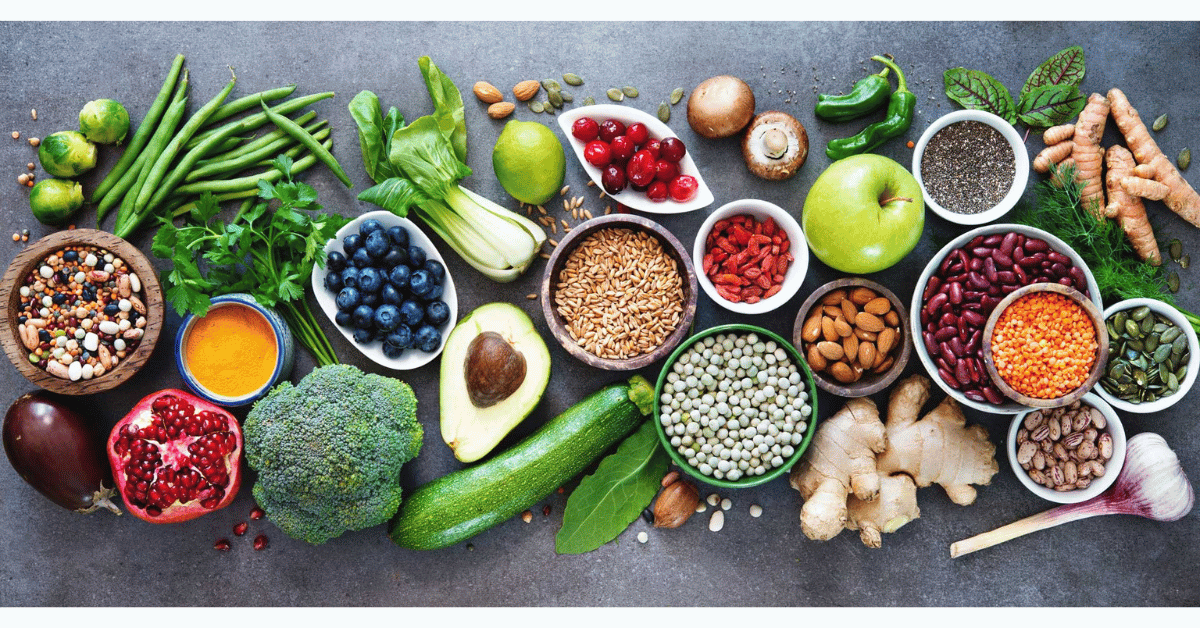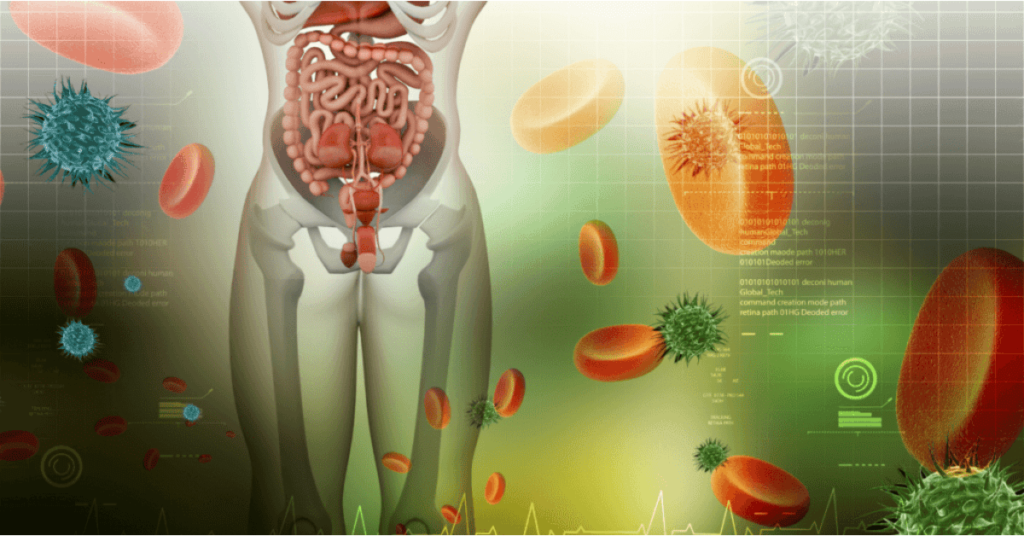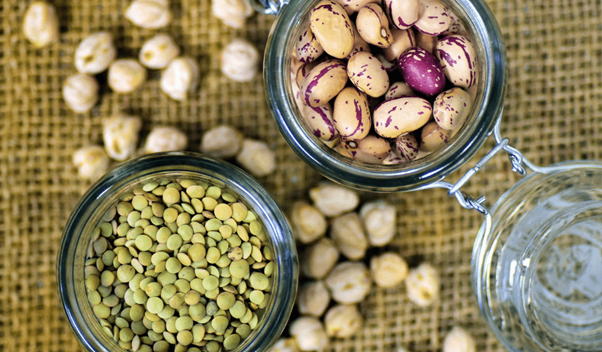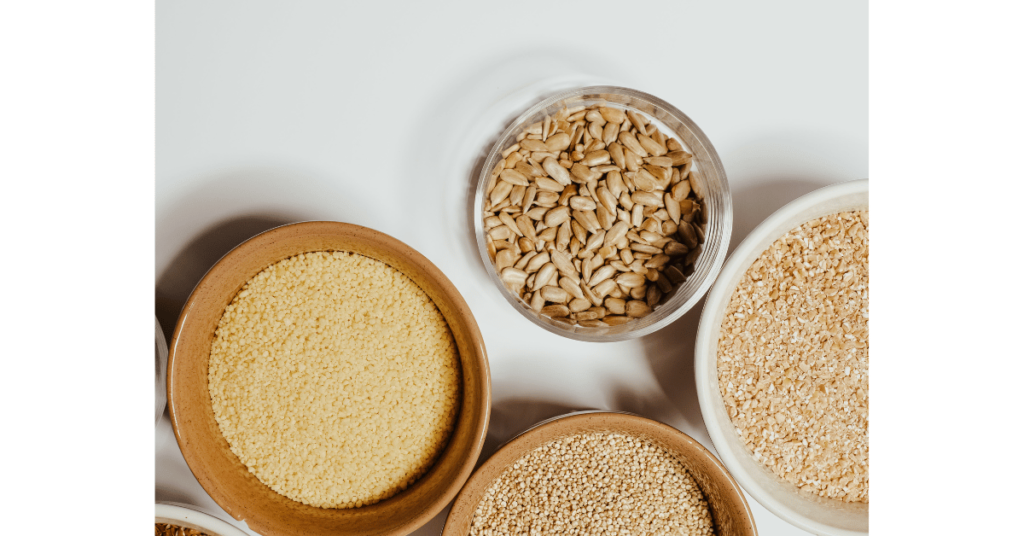The Best Whole Food Plant-Based and Gut Health

Introduction
Gut health is a hot topic in the health and wellness world, and for good reason.
Our gut is home to 40 trillion of good and bad bacteria. These bacteria are vital to our health and well-being.
There is so much information available. It can be overwhelming to know where to start when it comes to improving your gut health.
This article will explore the best whole food plant-based options and gut health.
We’ll also delve into…
- The critical components of a whole food plant-based diet for optimal gut health.
- The link between whole food plant-based diet and improved gut health.
- The power of fibre-rich foods in promoting a healthy gut microbiome.
- Harnessing the benefit of fermented foods to support gut health. And understanding the best time to eat sauerkraut for optimal gut health.
But do we understand what the buzz is all about about gut health?
What is Gut Health
Before we dive into the best foods for gut health, let’s first understand what gut health means.
Gut health balances your digestive tract’s gut microbiome, immunity, and healthy intestinal lining.

ONWC/Gut Health
These microorganisms are also known as gut flora or microbiota. They play a crucial role in digestion, the immune system, and health.
When your gut flora is not balanced, it can lead to various health issues. Health issues include digestive problems, inflammation, and even mental health issues. That’s why it’s crucial to focus on your gut health and give your body the right foods.
Now:
Let’s look at the components of a whole food plant-based diet for gut health.
the Key Components of a Whole Food Plant-Based Diet for Optimal Gut Health
The best whole food plant-based diet promotes gut health. This diet focuses on plant-based nutrition.
Plant foods are rich in fibre, antioxidants, phytochemicals, and prebiotics. These are essential components that support a healthy gut microbiome.
The gut microbiome is trillions of microorganisms in our digestive tract. It plays a crucial role in digestion. It also helps with nutrient absorption, immune function, and mental well-being.
Adopt a whole food plant-based diet. It provides your gut with an abundance of fibre and diverse nutrients.
These whole-food plant-based nutrients support the growth of beneficial bacteria. They reduce inflammation and promote gut health. This dietary approach has many benefits for both physical and mental well-being.
Here’s what to know about this diet and scientific evidence on gut health.
We will delve into the scientific evidence. It supports the effects on the gut microbiome’s composition and diversity. We will discuss advantages such as improved digestion. It also enhances nutrient absorption and reduces the risk of chronic diseases. These include obesity and cardiovascular ailments.
How can a whole food plant-based diet pave the way to optimal gut health?
Incorporating Nutrient-Dense Fruits and Vegetables into Your Daily Meals
Whole Food Plant-Based Fruits and Vegetables
Eating nutrient-dense fruits and vegetables in your daily meals is crucial. It helps maintain a healthy lifestyle.
Plant-based fruits and vegetables are rich in phytonutrients and antioxidants and offer many health benefits.
The Power of Phytonutrients
Add colourful fruits and vegetables to your meals. This addition will help you get a wide range of nutrients. These nutrient-dense foods contain phytonutrients, natural compounds in plants that promote good health. Researchers linked phytonutrients to reducing the risk of chronic diseases. They include heart disease, cancer, and diabetes.
Whole Food Plant-Based and Antioxidants
Antioxidants in fruits and vegetables pack a punch. They safeguard our cells against damage inflicted by free radicals.
Antioxidants are crucial in maintaining health and well-being. They support our immune system and reduce inflammation in the body.
Choosing Quality Sources of Whole Food Plant-Based Proteins for Gut Health Support
Adding plant-based protein sources to your diet can be a game-changer. It can support gut health.
Legumes and beans have a wide range of benefits. They go beyond providing only essential nutrients.
Whole Food Plant-Based Protein Sources
Lentils, chickpeas, and black beans are rich in plant-based proteins. They are also high in fibre.
This combination is vital for promoting a healthy gut. Fibre acts as a prebiotic. Fibre nourishes the beneficial bacteria in your gut. This combination helps to maintain a balanced microbiome.
Legumes and Beans for Gut Health

Vitamins, minerals, and antioxidants pack legumes and beans. They support digestive health. Besides, they are high in fibre. Legumes help regulate bowel movements and reduce the risk of constipation. They also promote regularity.
Furthermore, legumes and beans are versatile ingredients. You can incorporate them into various dishes. There are many ways to enjoy these protein-packed foods. You can make hearty stews, vibrant salads, or plant-based burgers. All of them can help your gut health.
Opting for organic options when choosing plant-based proteins is best. Organic legumes and beans are free from harmful pesticides or chemicals. These could disrupt your gut microbiome’s delicate balance.
The Amazing Power of Fibre-Rich Foods in Promoting a Healthy Gut Microbiome
The health of your gut microbiome enables you to maintain health and well-being. When promoting a healthy gut, remember the fantastic power of fibre-rich foods.
Dietary Fibre Benefits for Gut Health
For many years, people have recognized the many benefits of dietary fibre. It is primarily known to support gut health. It fuels the beneficial bacteria in your digestive system. The fibre helps them thrive and maintain a balanced microbiome.
Fibre helps friendly microbes thrive. This fibre aids digestion and nutrient absorption. It also prevents constipation and supports regular bowel movements.
High Fibre Whole Grains and Seeds

High-quality whole grains and seeds are excellent for adding fibre to your diet. These nutrient-packed foods provide a rich source of dietary fibre. They also offer essential vitamins, minerals, and antioxidants that contribute to health.
Whole grains such as oats, quinoa, and brown rice contain soluble and insoluble fibre. Soluble fibre forms a gel-like substance in the digestive tract. It helps regulate blood sugar levels and lower cholesterol. On the other hand, insoluble fibre adds bulk to stool and promotes regularity.
Chia seeds, flaxseeds, and sunflower seeds are also excellent sources of dietary fibre. You can incorporate them into meals or snacks to boost your daily intake.
These tiny powerhouses provide plenty of fibre. They also deliver essential fatty acids that support heart health.
Adding high-fibre whole grains and seeds to your diet can improve gut health. Nourishing your microbiome with these nutrient-dense foods can improve digestion. It can also enhance nutrient absorption and promote regular bowel movements.
Why not make these delicious additions part of your daily routine?
Harnessing the Benefits of Fermented Foods to Support Gut Health
Recently, there has been growing interest in the role of fermented foods. They may support gut health. Fermented foods have a rich history and diverse flavours. They offer more than just a tantalizing taste experience. They also provide a host of benefits for our digestive system.
Fermented Food Benefits for Gut Health
Fermented foods have many probiotics. These probiotics are a crucial advantage. Probiotics are live bacteria and yeasts that are vital for our gut microbiome. These microorganisms facilitate a healthy balance of bacteria in our digestive tract. This healthy balance is crucial for optimal digestion and nutrient absorption.
Fermented foods are excellent sources of probiotics. Examples include yoghurt, sauerkraut, kimchi, kefir, and kombucha. These live cultures can populate your gut with beneficial bacteria. They promote better gut health.
Fermented foods provide probiotics. They also enhance the bioavailability of nutrients in the foods we eat. The fermentation process changes complex carbohydrates and proteins. It converts them into more easily digestible forms. This conversion means our bodies can extract more nutrients from these foods. These easily digestible carbohydrates and proteins lead to improved nutrient absorption and well-being.
Furthermore, researchers have linked consuming fermented foods to various health benefits. These benefits go beyond gut health. These foods may boost immune function and reduce inflammation. They can also improve mental health and support weight management.
The Best Time to Eat Sauerkraut for Gut Health

Jae Park (https://unsplash.com/@jaehunpark
Many traditional diets consider sauerkraut a staple. It is a fermented food made from cabbage. It is rich in probiotics and can help to help digestion and facilitate a healthy gut microbiome.
But when is the best time to eat sauerkraut for optimal gut health? The answer is it depends.
Some experts recommend consuming sauerkraut on an empty stomach. Other foods do not hinder the probiotics from reaching the gut. But others suggest consuming sauerkraut with a meal. The fibre in the cabbage can slow down sugar absorption and promote feeling full.
Ultimately, the best time to eat sauerkraut for gut health will vary from person to person. Listening to your body and experimenting to see what works best for you is essential.
Let’s hear Nicole’s success story of using sauerkraut for her gut health.
Nicole Gut Health: A Success Story
Nicole is a 35-year-old woman who has struggled with digestive issues for years. She tried various diets and supplements, but nothing seemed to work. That’s when she discovered the power of a whole food plant-based diet and its benefits on gut health.
Nicole started adding more plant-based foods to her diet. These include leafy greens, whole grains, and fermented foods like sauerkraut. She also made sure to listen to her body and eat sauerkraut at different times of the day to see what worked best for her.
Within a few weeks, Nicole noticed a significant improvement in her digestion. She no longer experienced bloating, gas, or discomfort after taking meals. Her energy levels improved.
Today, Nicole continues to focus on her gut health. She follows a whole-food, plant-based diet and incorporates fermented foods into her meals. Nicole has also noticed improvements in her health and well-being. She is grateful for the positive impact of a plant-based diet on her gut health.
The Link Between Whole Food Plant-Based and Improved Gut Health – Scientific Evidence Explained
Scientific evidence shows that whole food plant-based diets improve gut health. Many studies have explored the impact of plant-based nutrition on the gut microbiome. They revealed compelling evidence supporting the benefits of this dietary approach.
Evidence Supporting Whole Food Plant Based Diet for Gut Health
Research has shown that a plant-based diet can influence gut bacteria makeup and complexity. Whole food plant-based diet is rich in fruits, vegetables, whole grains, legumes, and nuts. Beneficial microbes are crucial for maintaining a healthy digestive system and well-being.
Studies on Gut Microbiome and Whole Food Plant-Based Nutrition
Studies show that people on plant-based diets have more diverse gut bacteria. Those on animal-based diets do not have as diverse gut bacteria.
This diversity of gut bacteria improves digestion. It also enhances nutrient absorption and reduces inflammation in the gut.
Furthermore, plant foods are rich in dietary fibre. They fuel the beneficial bacteria in our intestines. Eating lots of fibre in a whole food plant-based diet nourishes these microbes. It helps them thrive. Eating fibre-rich foods helps maintain a balanced ecosystem within your gut.
Moreover, research has highlighted how plant-based diets can help ease gastrointestinal disorders. These include irritable bowel syndrome (IBS) and inflammatory bowel disease (IBD). They can also promote weight management. Plants have anti-inflammatory properties. They also have high antioxidant content. These properties reduce inflammation in the gut lining.
Scientific evidence supports that a whole plant-based diet can improve gut health. It promotes microbial diversity, reduces inflammation, and enhances digestive function. Embracing this dietary approach benefits your well-being. It also contributes to environmental sustainability.
Conclusion
Gut health is crucial for our well-being. The best whole food plant-based diet and gut health guide gives you the power to promote your healthy gut microbiome. Incorporate fermented foods, leafy greens, whole grains, nuts, and seeds into your diet. Eating whole food plant-based supports gut health and brings many benefits.
Remember, the best time to eat sauerkraut for gut health may vary from person to person. Listen to your body and experiment to see what works best for you. You can improve your gut health With effort and some delicious plant-based meals. You can feel your best.
Now that you’ve explored the best whole food plant-based and gut health, it’s time for you to act.
What action are you going to take first to improve your gut health?
Let us know by leaving a comment below right now.

1 thought on “The Best Whole Food Plant-Based and Gut Health”